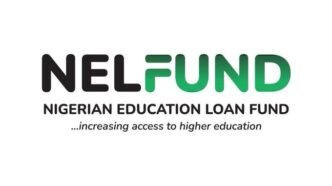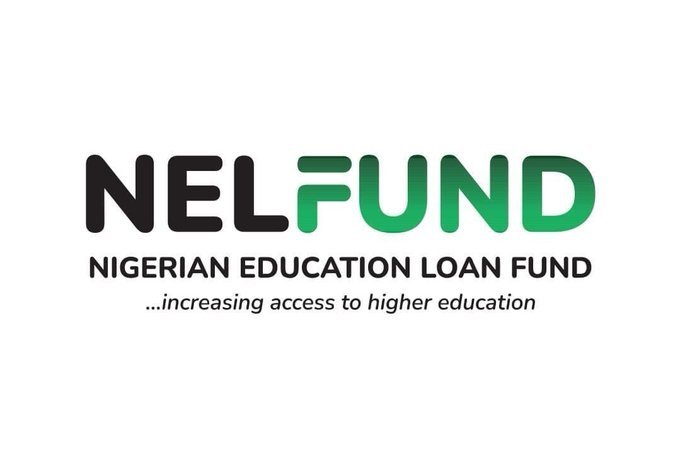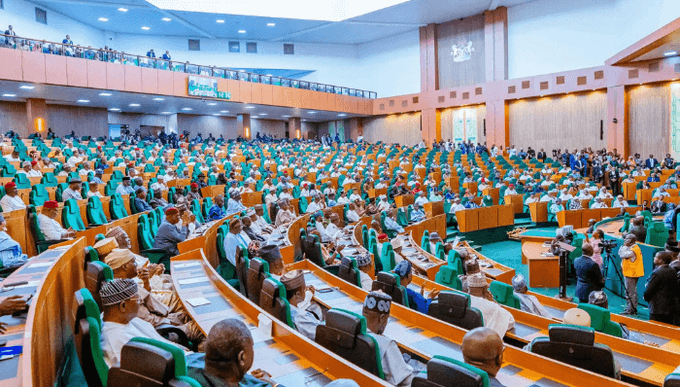Abuja, Nigeria — October 21, 2025
The Nigerian Education Loan Fund (NELFUND) has officially announced the opening of its online application portal for the 2025/2026 academic session, marking another milestone in the federal government’s drive to expand access to higher education through financial inclusion.
The announcement was made on Monday by NELFUND’s Managing Director and Chief Executive Officer, Mr. Akintunde Sawyerr, who revealed that the portal is now live and accessible to eligible students across all public tertiary institutions in Nigeria, including universities, polytechnics, colleges of education, and technical colleges.
According to Sawyerr, the launch of the student loan application portal is a key part of the government’s plan to ease the financial burden on Nigerian students and ensure that no young person is denied higher education due to economic challenges.
“Today’s opening of the application portal represents the realization of a major national objective — ensuring that education is accessible to all, irrespective of social or economic background. We encourage all eligible students to visit the portal and complete their applications for the 2025/2026 academic session,” Sawyerr said.
How to Apply
NELFUND announced that the application process is entirely digital, free of charge, and designed to be user-friendly.
To apply, students are required to:
- Visit the official NELFUND application portal (portal.nelf.gov.ng).
- Create a personal account using a valid email address and phone number.
- Provide their Student Identification Number (Matric Number) or JAMB Registration Number, along with other academic details.
- Upload necessary documents, including proof of admission, National Identification Number (NIN), and bank details.
- Review and submit the completed application form.
The agency assured that applicants will receive real-time updates on their loan status through SMS and email notifications. Successful applicants will have funds disbursed directly to their institution’s accounts to cover tuition fees and other approved expenses.
A Lifeline for Students
The NELFUND scheme — officially launched by President Bola Ahmed Tinubu earlier this year — is one of the administration’s flagship social intervention programs. It aims to make tertiary education more accessible and affordable for Nigerian youth amid the rising cost of tuition and living expenses.
The initiative was created under the Students Loan (Access to Higher Education) Act, 2023, which provides interest-free loans to Nigerian students studying in recognized public institutions.
Under the scheme, beneficiaries can use the loans to pay tuition fees, purchase learning materials, and meet living costs during their studies. Repayment is structured to begin two years after the beneficiary completes the National Youth Service Corps (NYSC) program, or once they secure employment — whichever comes first.
“The student loan program is not a handout but an empowerment mechanism,” Sawyerr emphasized. “It allows our young people to pursue their dreams with dignity and pay back once they are able to contribute to the economy.”
Transparency and Accountability Measures
NELFUND has assured Nigerians that the entire process is built around transparency, accountability, and fairness. The system integrates with national databases — including the National Identity Management Commission (NIMC), Joint Admissions and Matriculation Board (JAMB), and Tertiary Institutions’ Student Information Systems — to ensure authenticity of applications.
The Fund also stated that its Loan Management System will prevent multiple or fraudulent applications, while maintaining a detailed record of disbursements and repayments.
In his remarks, NELFUND’s Director of Operations, Dr. Aliyu Bako, said the system has undergone months of testing to ensure reliability and security.
“We have built a robust digital architecture to make the process seamless. Applicants can complete the entire process from their mobile phones or computers, without having to visit any physical office. This minimizes human contact and eliminates corruption risks,” he said.
Federal Government’s Commitment
The launch of the application portal comes at a critical time when many Nigerian students face financial uncertainty due to economic pressures.
Vice President Kashim Shettima, who chairs the Education Loan Steering Committee, reaffirmed the federal government’s commitment to sustaining the NELFUND initiative as a pillar of educational reform and youth empowerment.
“Education remains the most powerful investment in our nation’s future. The student loan scheme will ensure that every Nigerian child, regardless of background, has equal access to learning and opportunity,” Shettima said during a previous review meeting.
He added that the government is working with the Central Bank of Nigeria (CBN) and partner financial institutions to guarantee the fund’s sustainability and efficient loan disbursement.
Inclusion of Technical and Vocational Students
One of the major highlights of the 2025/2026 rollout is the inclusion of students in technical and vocational institutions, reflecting the administration’s emphasis on skills development and employability.
NELFUND stated that the scheme is not limited to university undergraduates but also open to students in polytechnics, colleges of health technology, agriculture, and technical education centers — a move designed to support Nigeria’s growing need for skilled professionals in key industries.
Monitoring and Loan Recovery
To ensure long-term sustainability, NELFUND disclosed that it has established a Loan Recovery Department that will work in collaboration with employers, government agencies, and financial institutions to monitor repayments.
Borrowers will be required to repay the loan in structured installments once they begin earning a defined minimum income. Employers are expected to deduct repayments at source and remit them to the Fund as stipulated by law.
Reaction from Students and Stakeholders
The announcement has been met with widespread excitement from students across the country, especially those struggling with tuition and living expenses.
President of the National Association of Nigerian Students (NANS), Lucky Emonefe, hailed the development as “a breath of relief” for many young Nigerians.
“This is a historic day for students. For years, we have been calling for practical solutions to make education affordable. With this portal now open, thousands of students can continue their studies without fear of dropping out,” he said.
Education analysts and civil society organizations also applauded the initiative, noting that if effectively implemented, it could reduce dropout rates and boost human capital development across the country.
Challenges and Expectations
Despite the optimism, some stakeholders have urged NELFUND to ensure that the loan approval process is fair, inclusive, and free from political influence.
They also called for public awareness campaigns to educate students, parents, and institutions about the requirements and responsibilities associated with the loans.
“Access is just the first step. Transparency and efficient management are key to the success of this program,” said Dr. Funke Adebayo, an education policy expert at the University of Lagos.
Looking Ahead
With the portal now live, the Nigerian Education Loan Fund is expected to process tens of thousands of applications over the next few weeks as universities and polytechnics prepare for the new academic session.
NELFUND officials have assured applicants of prompt feedback and disbursement timelines once verification is completed.
The initiative, analysts say, has the potential to transform Nigeria’s higher education landscape, bridging inequality gaps and equipping young Nigerians with the means to achieve their academic and career goals.
“Education should not be a privilege but a right,” Sawyerr reiterated. “Through this student loan scheme, we are building a nation where every young person can dream, learn, and succeed — regardless of financial background.”














